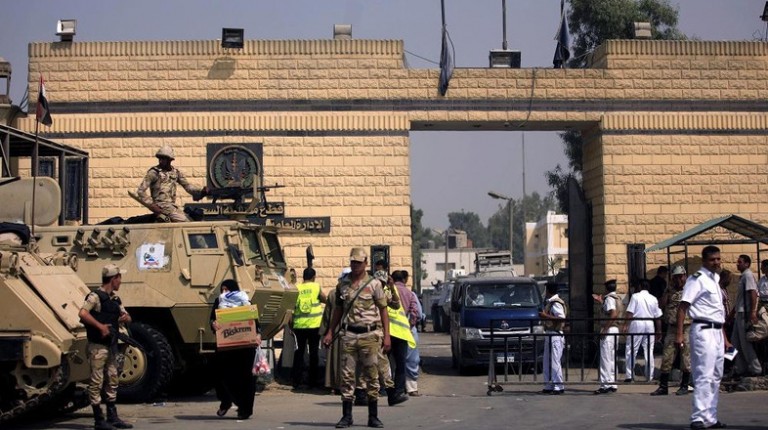Egyptian and Emirati relations have been lukewarm for months on several levels, especially the hot issues that the region is going through, in which Abu Dhabi plays an influential role. This apathy increased the state of resentment among decision-makers in Egypt, with the stances of the Emirati rulers recently, due to ignoring repeated Egyptian demands about several crises. This dissatisfaction prompted the Egyptian presidency to issue supreme directives for a higher review before embarking on a response to any Emirati proposals regarding common positions between them. Those working on joint issues with the UAE are well aware of the change in public policies, although there are no written orders.
On the other hand, Abu Dhabi insists on reaping the most enormous gains from its relationship with Cairo, given that it is paying previous bills that the UAE paid to Abdel Fattah al-Sisi during the first four years that followed his coup against the first elected civilian president, Mohamed Morsi. The UAE believes that it provided a lot of financial support to Cairo during previous periods, without reaping a return equivalent to the size of what they spent, other than implementing their policy aimed at besieging the Brotherhood and political Islam.
The UAE had previously stipulated that no new financial support would be provided to the Egyptian regime without the supervision of specialised committees on its part on the aspects of this spending, to ensure maximum benefit. This approach angered the competent Egyptian departments, but they accepted at one stage under pressure from the need for these funds, pointing out that that period was when one of the Emirati ministers was almost permanently present in Egypt.
Since then, Cairo’s policies began to change towards the Emirati side, albeit slightly. The Egyptian position transformed into Cairo pledging any support on its part to the UAE’s positions on any issue, whether Libya or the conflict between Ankara and Abu Dhabi, to a clear benefit return. The repeated request for funds and financial aid caused discontent in Abu Dhabi. After that, the UAE began to realise al-Sisi’s intentions of changing his position according to his benefits, which enabled him to rule Egypt. During the past two years, Abu Dhabi sought to have pressure papers in its hand that would enable it at any time to blackmail him, which angered al-Sisi.
The UAE’s insistence that it will not provide absolute financial support, and its limitation to paying with investments affiliated with it, provided that it obtains appropriate privileges and competitive opportunities higher than it might get if these funds are invested in other countries, angered Egypt. This anger prompted Egypt to find new ways to save money, by reducing the subsidies, increasing the prices of several services provided, collecting funds for building violations, evacuating many vital areas, and converting them to investment projects, under the name of public benefit. Although al-Sisi previously refused to compromise on these issues, these steps came, fearing widespread anger.
Returning to the Emirati-Egyptian dispute, unlike the financing issue, Abu Dhabi’s fluid position regarding the Renaissance Dam crisis and its opening of a permanent communication line with Ethiopia without paying attention to the repeated Egyptian demands, to exploit these relationships in helping Cairo, angered Egypt. Regarding Libya, over the course of a year and a half, there were many discrepancies between Cairo and Abu Dhabi, some of which appeared to the public and others which were kept secret.
The issue of Emirati-Israeli relations has recently escalated between Abu Dhabi and Cairo, especially in light of preparatory arrangements and consultations on digging a new water canal linking the Mediterranean and Red Bahrain, similar to the Egyptian Suez Canal. There is a strong state of anger within the concerned Egyptian departments, resulting from the Emirati and Israeli actions, when Cairo makes significant efforts to serve on issues in favour of Abu Dhabi and Tel Aviv. The danger of these Israeli-Emirati moves lies in the fact that this step threatens the Suez Canal’s fate and future, which represents an essential input from the Egyptian economy.
The desert oil pipeline linking the port of Eilat on the Gulf of Aqaba to the Red Sea, and the oil tanker terminal in Ashkelon on the Mediterranean, would be a threat to the Suez Canal and its revenues. This pipeline would be a cheaper alternative to the Egyptian Suez Canal, and an option to connect to Arab pipeline networks that transport oil and gas, not only to the region but to the seaports that supply the world.
Away from the economic side, with the UAE entering the line of relations with Israel, Egypt may lose its primacy and influence with Tel Aviv as the primary channel between Israel and the Arab countries. The new Arab players will compete with each other over who will help the Palestinians the most, and transfer the stalemate in the Palestinian issue and the pendulum of influence from Egypt to the Gulf region.





Recent Comments